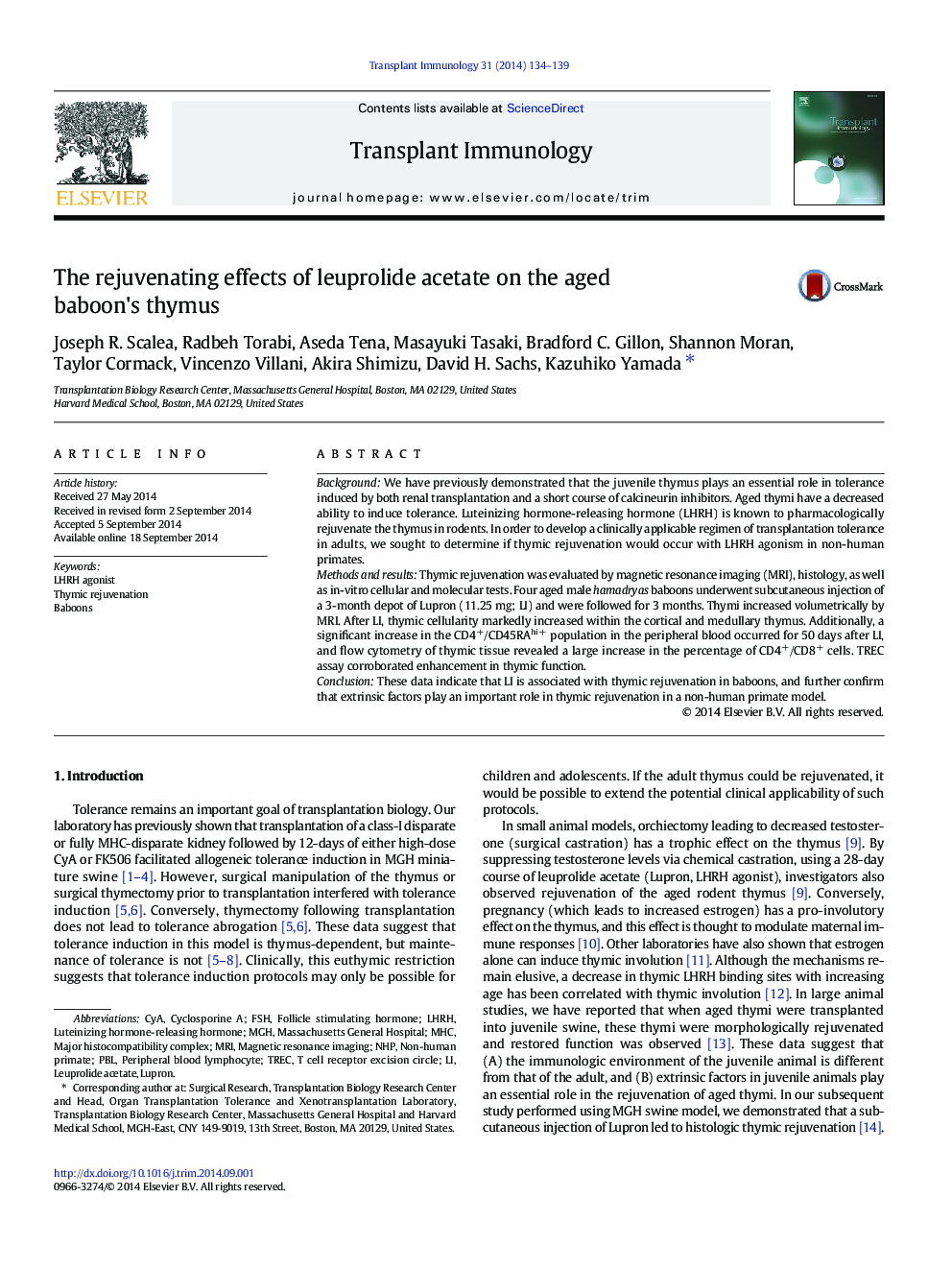| Article ID | Journal | Published Year | Pages | File Type |
|---|---|---|---|---|
| 3392000 | Transplant Immunology | 2014 | 6 Pages |
•The study demonstrated the rejuvenating effects of leuprolideacetate (Lupron) on the aged thymus in non-human primates.•Luteinizing hormone-releasing hormone (LHRH) agonist injection led to thymic rejuvenation in aged baboons.•LHRH agonist injection led to increases in thymus volume and enhancement on MRI.•CD4+/CD45RAhi population doubled by 50 days after administration of LHRH agonist.•TREC assay confirmed that baboon thymic rejuvenation occurs after LHRH agonist injection.
BackgroundWe have previously demonstrated that the juvenile thymus plays an essential role in tolerance induced by both renal transplantation and a short course of calcineurin inhibitors. Aged thymi have a decreased ability to induce tolerance. Luteinizing hormone-releasing hormone (LHRH) is known to pharmacologically rejuvenate the thymus in rodents. In order to develop a clinically applicable regimen of transplantation tolerance in adults, we sought to determine if thymic rejuvenation would occur with LHRH agonism in non-human primates.Methods and resultsThymic rejuvenation was evaluated by magnetic resonance imaging (MRI), histology, as well as in-vitro cellular and molecular tests. Four aged male hamadryas baboons underwent subcutaneous injection of a 3-month depot of Lupron (11.25 mg; LI) and were followed for 3 months. Thymi increased volumetrically by MRI. After LI, thymic cellularity markedly increased within the cortical and medullary thymus. Additionally, a significant increase in the CD4+/CD45RAhi + population in the peripheral blood occurred for 50 days after LI, and flow cytometry of thymic tissue revealed a large increase in the percentage of CD4+/CD8+ cells. TREC assay corroborated enhancement in thymic function.ConclusionThese data indicate that LI is associated with thymic rejuvenation in baboons, and further confirm that extrinsic factors play an important role in thymic rejuvenation in a non-human primate model.
